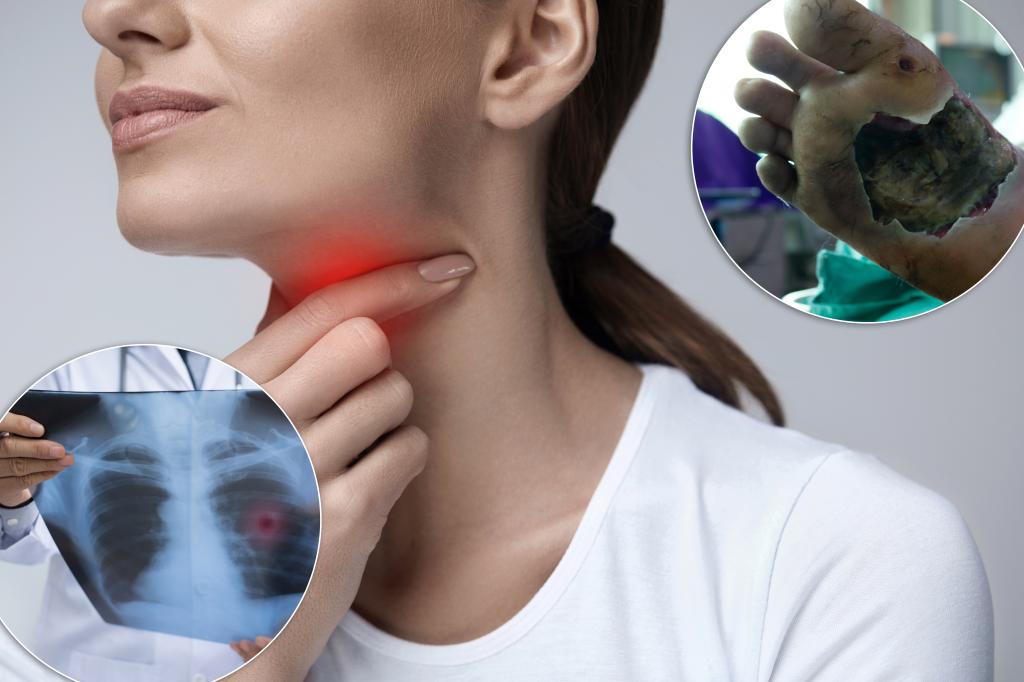A critically ill Connecticut woman has been treated for the same life-threatening, flesh-eating infection that is plaguing Japan.
The American patient was admitted to her local hospital after experiencing symptoms of vomiting, diarrhea, shortness of breath, elevated heart rate and low blood pressure.
Subsequent medical scans showed fluid buildup in the patient’s lungs as well as respiratory and kidney failure.
Doctors maintain the woman’s illness is the result of Streptococcal toxic shock syndrome (STSS), a lethal bacterial infection that has claimed the lives of 77 people in Japan this year alone.
After three days in intensive care, the woman stopped urinating, and one of her toes turned black, a symptom of necrosis.
The case report was published in the journal Cureus.
Doctors believe the patient, who is asthmatic, contracted STSS by breathing in infected air droplets. Prior to her hospitalization, several of the patient’s family members had been diagnosed with strep throat. The common illness, defined by throat pain and discomfort when swallowing, is caused by the bacteria group A Streptococcus (group A strep).
Most group A strep infections cause mild illnesses like strep throat. However, when that bacteria spreads to the blood and deep tissue, it can trigger the development of STSS, which kills 30% of patients who are affected.
STSS often results from bacteria being exposed to an open wound, which allows the bacteria to access deeper tissue. STSS begins with common flu-like symptoms such as nausea, vomiting, fever, chills and muscle aches. As it progresses, it can cause blood pressure to drop and heart rate to accelerate, provoking organ failure.
As in the case of the Connecticut patient, STSS attacks healthy tissue, eroding flesh, which, in some instances, calls for amputation.
The Connecticut patient has completed a course of antibiotics and inpatient rehab, though doctors note she may still require amputation of the affected toe.
Cases of STSS have spiked in Japan; 1,000 people have been infected this year alone, and 77 have died. Experts believe the surge results from immunity debt, the weakening of the immune from lack of exposure to a diverse group of pathogens.
“We can boost immunity if we are constantly exposed to bacteria. But that mechanism was absent during the coronavirus pandemic,” Dr. Ken Kikuchi of Tokyo Women’s Medical University explained. “So, more people are now susceptible to infection, which may be one reason for the sharp rise in cases.”
Despite the string of cases in Japan, experts maintain that influenza and COVID-19 infections are much higher.
As Bloomberg reported, Japan’s health ministry has assured tourists planning to visit the country that there is no need to cancel or amend their travel plans.
Regarding STSS and the US, experts stress that a surge or spread is unlikely. However, they urge patients to be vigilant about caring for open wounds and to seek medical attention if they experience any of the symptoms associated with STSS.
#woman #contracts #deadly #flesheating #infection #plaguing #Japan,
#woman #contracts #deadly #flesheating #infection #plaguing #Japan
